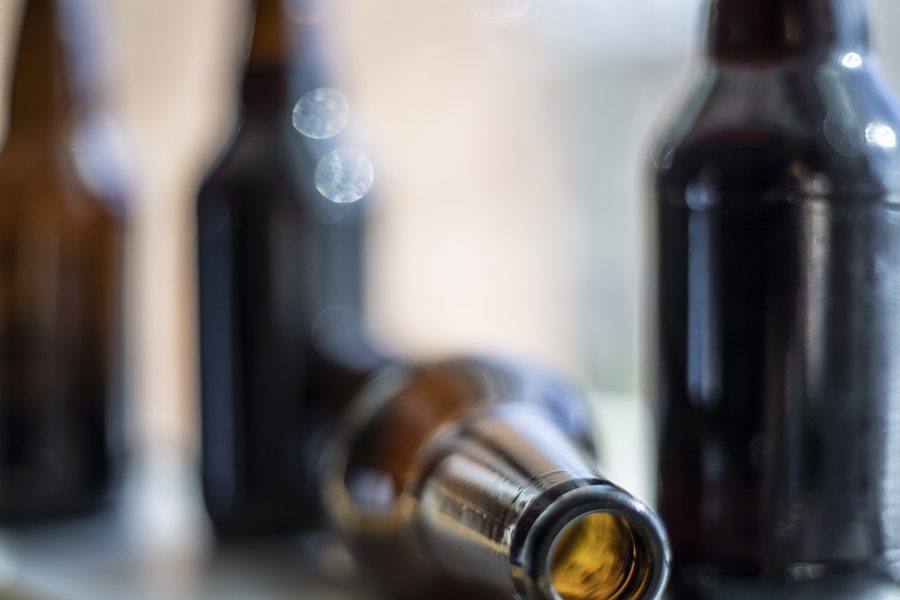Research warns against substance abuse among college students
A new study by the American Addictions Centers suggests that college students who use alcohol and other substances as a coping method for stress are at risk for addiction in the years to come.
Photo illustration
April 22, 2019
For many college students, partying is a large part of the college experience. However, new research suggests that excessive drinking and illegal drug use are not exclusive to a night out. In fact, both are common coping methods for current and former college students.
According to a new study by the American Addiction Centers, 98 percent of the 980 college students and graduates whom they polled indicated stress as a major effect on their mental health. Further research proved that alcohol and substance abuse were common cures.
“Students today are faced with pressures that other generations didn’t have to face,” American Addiction Chief Medical Officer Lawrence Weinstein said. “Student debt has a collective total of nearly $1.5 trillion, with an average debt of approximately $37,000, and exams bring about a stress of their own.”
American Addiction conducted the research to determine how students are dealing with varying levels of stress, properly or improperly, he said. There was a 30 percent increase in college students seeking appointments with counseling centers between 2010 and 2015, he noted.
“It’s important for professors, administrators, other students, and parents to understand the degree of stress that some students may experience so they can be cognizant of worrying behavior or even signs of addiction,” Weinstein said.
Additional causes of stress in college include assignments, internships, competition, accomplishments after graduation, among other items, he said. People turn to alcohol and drugs to minimize the effects of particular emotions and challenging events, he said.
RELATED: UI boosting late-night programming as alternative to drinking on weekends
For example, he said, alcohol slows down the central nervous system and causes a feeling of relaxation. Using substances for this reason can damage relationships and prevent young students from developing alternative coping mechanisms, he said.
“The parents of these students can recognize and acknowledge that the stress their college student is enduring is very real and may be taking a toll on them,” Weinstein said. “While these substances may seem to help at the moment, they do a lot more harm than good.”
Learning how to cope with stress isn’t often taught in school, Weinstein said, and potential solutions could include maintaining a healthy diet, consistent exercise, a proper amount of sleep, and a solid support system.
Becca Don, a University of Iowa Student Wellness senior behavioral health consultant, said she consistently sees substance abuse in patients coming to her office. It often seems like a quick fix to students, she said, but only masks the stress temporarily, which typically returns more extremely than before.
“In serious cases, substances as a coping mechanism can rewire the pathways in the brain and get to a point that someone may need substances just to feel normal and are no longer using them to feel better,” Don said.
Dependence is a real risk, she said, and adults now live with a substance-use disorder that often began when they were college aged. The earlier students can identify and address harmful substance use, she said, the more successfully it can be treated or prevented.
Student Wellness partners with the University Counseling Service, Don said, and connects with student groups for those struggling with substance use.
Tanya Villhauer, the director of student wellbeing and harm-reduction initiatives in the Division of Student Life, said students should consider the campus’ recovery programs.
Villhauer pointed out that the 2018 National College Health Assessment showed UI students in the previous 12 months were negatively affected by drinking alcohol because they regretted their actions, forgot their actions, had unprotected sex, got in trouble with the police, or were physically injured.
“The UI Alcohol Harm Reduction Plan focuses on reducing high-risk drinking and related harms to UI students using comprehensive and evidence-based practices,” Villhauer said.






